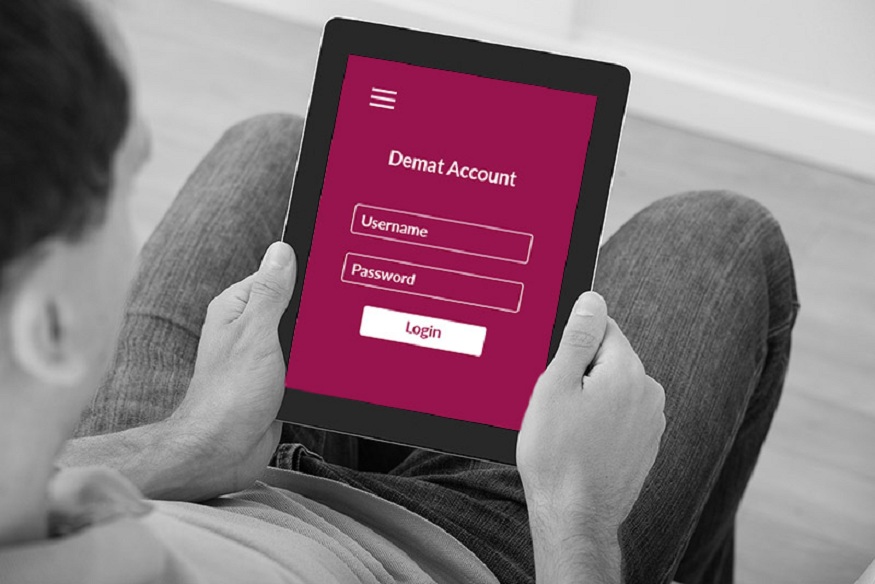Due to the character of the markets, many resonant low and highs are experienced throughout regular company stocks. Investors have continued to participate in the markets despite the volatility that comes with investing in equities. India has witnessed a sharp rise in investors and traders who have turned to stocks as both a source of investment and their primary source of income from trading, notably in the post-pandemic era. For this reason, it is essential that traders and shareholders understand the fundamental concepts and workings of the markets. One such crucial piece of information that is essential for efficient and successful trading is the amount of collateral in the demat account. So, learn about collateral if you are about to open demat account soon.

What Are Demat accounts?
Let’s first clarify what a Demat account is and what it means before moving on to the definition of collateral amount. Dematerialised or digital assets of a shareholder or trader are stored in a demat account, which is a digital account. This makes it simple for investors and traders to purchase and sell shares online. Assets like shares, mutual funds, government securities, etc. It can be held by investors and traders. Any registered broker’s internet portal makes it simple to create a Demat account. To open a Demat account, the shareholder or seller needs to pay the required fees and provide the required KYC.
What is the value of the collateral?
Stock trading needs a significant inflow of cash to purchase and sell assets and take appropriate positions depending on market movements. The long time taking positions is key to maximise gains or limit losses, and this costs money. Brokers assist investors who lack sufficient capital by giving them money in the form of margin money, which they may use to trade stocks. This margin funding comes in the form of a mortgage and is given in exchange for security. Owners of Demat accounts may offer this collateral in the form of shares or securities currently held in the account, which account owners may then guarantee.
The stockbroker will give the traders a collateral amount, also known as collateral margin, equal to a percentage of the value of the securities guaranteed. Depending on the regulations of certain brokers and the maximum margin money they may grant, different amounts of collateral are offered. The shares put up as collateral are locked by the broker and can not be sold until the account holder fully reimburses the broker for the collateral margin. If the account owner is unable to pay the broker back, the broker may sell the pledged shares to recoup the value of the collateral.
How is a Demat Account’s Collateral Amount Calculated?
Based on the market price of the shares you are using as collateral assets, the amount of collateral in your demat account is calculated. Your dealer will not provide you with the whole amount as collateral since there is a chance that the market price of the collateral assets may decrease. Because of this, the actual collateral margin you gave to increase your trading limit was less than the entire value of the committed securities.
What Advantages Do Collateral Amounts in Demat Accounts Offer?
Utilising the collateral margin facility has several advantages, a few of which have been covered below:
- It improves your capacity to buy and sell securities: A collateral margin is helpful, especially if you are experiencing a liquidity crisis. You can buy and sell shares using this service without having to deposit more money into your brokerage account. Instead, depending on the value of the securities you pledged, your stockbroker merely raises your trading limit.
- It raises your ratio: Because the option of the collateral amount in your demat account allows you to buy and trade assets on borrowed money, your leverage grows, as does your capacity to generate a decent yield without making a larger initial investment.
- Manage securities: The securities that have been bought for the long term frequently remain in the demat account without producing a return in the meantime. But you may employ such securities and make more transactions with the assistance of the collateral margin feature.
Conclusion
Trying to open a Demat account as an investor is the first step in starting your online trading experience and utilising the Demat fund’s collateral. It is abundantly evident from the explanation above that the collateral sum in the Demat account helps both the owner and the broker. Margin trading is dangerous, but it may significantly boost the holder’s purchasing power as long as both parties abide by the laws and regulations. Firms like Share India are providing an excellent demat account app that comes with margin trading facilities. The platform aids by offering quality research materials and trading advice.

